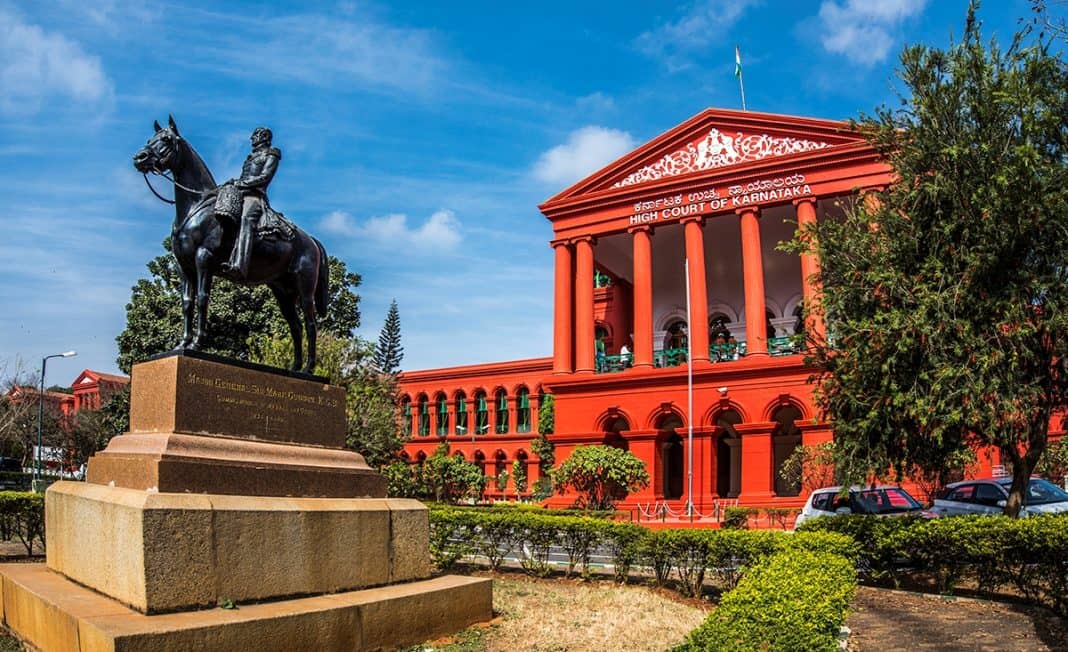The Karnataka High Court has noted that the POCSO Act and IPC are substantiate acts and they prevail over personal law and under the guise of personal law the petitioner cannot seek regular bail.
A bench of Justice Rajendra Badamikar while observing that even if the consent is said to be there, since the victim is a minor (aged 16 years) her consent become irrelevant, rejected the bail petition of the rape accused.
The petition is filed by the petitioner/accused No.1 under Section 439 of Cr.P.C for enlarging him on bail in Crime of Women Police Station, Chikmagalur, registered for the offences punishable under Sections 363, 342, 354D, 376(2)(n), 376(3) of I.P.C and Sections 6,12, 17 of the POCSO Act,2012.
In April 2022 the petitioner, having knowledge that the victim is a minor he has induced her and has taken her on a Motorcycle and with the help of the co-accused he obtained Room by giving his Aadhar Card. There he stayed along with the victim for one day and committed sexual assault on her. Subsequently, the accused brought back the victim and dropped her at a bus stand and then the victim approached her mother and narrated the incident.
In the meanwhile, the complainant has lodged a complaint of missing and a crime was initially registered under Section 363 of IPC. Subsequently, the Investigating Officer has recorded 161 Statement of the victim wherein, she is alleged to have narrated that she had voluntarily accompanied the petitioner and she had sexual relationship with petitioner. On the basis of these aspects the Investigating Officer has incorporated the provisions of 376(2)(n), 354D and Sections 6 and 12 of the POCSO Act. Later the victim was also produced before the Magistrate wherein, she has given statement under Section 164 of Cr.P.C asserting that the petitioner has forcibly and by enticing took her to Mysore and there he has committed penetrated sexual assault.
After conducting investigation, the Investigation Officer is said to have submitted the charge sheet. The petitioner was arrested and remanded to judicial custody. He has moved a regular bail petition before the Sessions Judge and his bail petition came to be rejected. Hence, he is before the High Court.
Having heard the arguments and perusing the records, the Court noted that the victim was a minor aged about 16 years.
“Admittedly, the victim is a minor, aged about 16 years. The learned counsel for petitioner has invited the attention of the Court to 161 statement of the victim wherein she is said to have stated that she has voluntarily accompanied the petitioner and has voluntarily indulged in sexual relationship with him. But her 164 statement speaks a different story, wherein she has specifically asserted that she was taken by the present petitioner forcibly and he had committed sexual intercourse with her and he has also troubled her,” the Bench further noted.
The counsel for petitioner argued that the age of puberty is required to be taken note off as parties are Mohammedans.
“But it is to be noted here that the POCSO Act and IPC are substantiate acts and they prevail over personal law and under the guise of personal law, the petitioner cannot seek regular bail.”
The statement of the victim under Section 164 itself clearly establishes that she was forced to have sexual relationship and that too after abducting her from custody of lawful guardian. Under these circumstances, there is prima-facie material evidence against the present petitioner and the medical evidence further discloses that the hymen was not intact and it establishes that there was a sexual relationship. No doubt, the investigation has been completed and the charge sheet has been laid down, however, mere submission of the charge sheet does not give any right to the present petitioner to claim bail as a matter of right. There is a possibility of tampering the prosecution witnesses. Looking at these facts and circumstances, the petition is devoid of merits and needs to be rejected. Accordingly, the petition is rejected,” observed the High Court.


